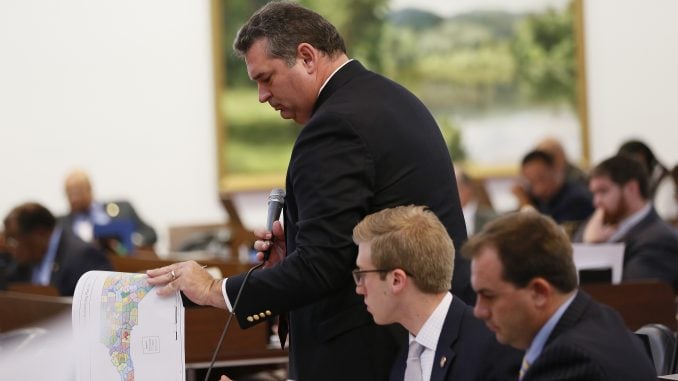
Three of the most important line items in our family’s budget: food, clothing, and shelter. These are among the largest expenses every household in North Carolina must account for. With shelter comes energy expenses, which includes the cost to cool our home in the brutally hot summers and heat it in the frigid winter. Energy is a necessity in the 21st century. As a conservative, I am always looking for ways to save money for families, including my own my own family of five.
That is why it’s important to know what is at stake with a critical, bipartisan piece of legislation known as the Storm Securitization and Alternative Rates Act (Senate Bill 559/House Bill 624), which has already passed in the North Carolina Senate. Along with my colleagues in the House, Rep. Julia Howard, Rep. John Bell, and Rep. Marvin Lucas, we are working hard to save customers money on their utility bills. This bill has two parts: the first part provides for Storm Securitization cost recovery and the second part provides the North Carolina Utilities Commission with two discretionary tools to bring our rate-case model into the 21st century.
Following the devastation caused by Hurricanes Michael and Florence, Duke Energy alone spent $700 million to restore much of North Carolina to the energy grid. In a nutshell, Senate Bill 559 would allow the utility to “securitize” the storm debt with a third-party debtor, providing 15-20 percent savings to utility customers as a result. Many states hit with extensive storm damage use securitization to save customers money on electric utility storm recovery costs. We must bring these savings to North Carolina’s energy customers.
This legislation will also provide state regulators new tools to use — only at their discretion and after a thorough public hearing process — that grant utilities better ways to plan for and deliver the clean and renewable energy we expect our utilities to provide. These modern, forward-looking tools — known as Multi-Year Ratemaking and Return-on-Equity Banding — reinforce North Carolina’s commitment to acting in the best interest of the public and bring our antiquated and expensive utilities rate-case process into the 21st century.
Saving ratepayers money and planning for North Carolina’s sustainable energy future should not be such a radical idea. Critics are making false claims that this legislation is a way for utilities to create profits by setting their own rates without any oversight from regulators. Nothing could be further from the truth. Senate Bill 559 would allow the N.C. Utilities Commission — the state’s agency staffed with a myriad of lawyers, accountants, and auditors — to continue regulating electric utilities and consider forward-looking proposals of utility investments that are best for customers.
By securitizing storm costs, electric utility customers will save money on their monthly power bills. By planning for the future, this bipartisan legislation will lead to smart, reasonable, and prudent utility investments that meet the cost-saving needs of customers while also conforming to mandates of N.C. law. It’s time to put utility customers, our constituents, and our businesses first — it’s time to pass Senate Bill 559.
Representative David R. Lewis (R-53) represents Harnett County and is the Chairman of the House Rules Committee
